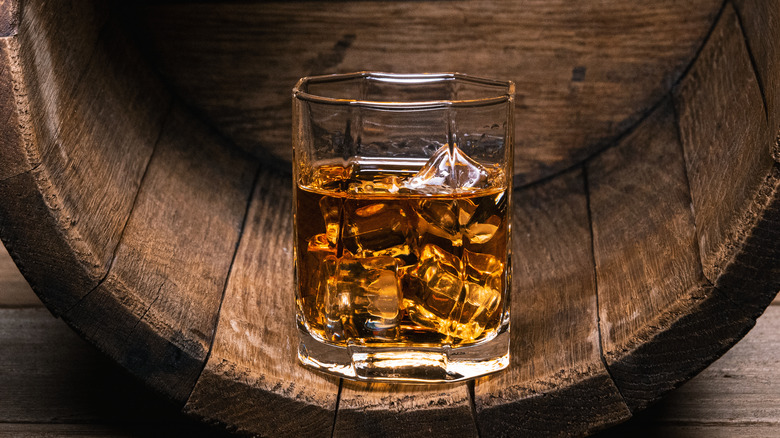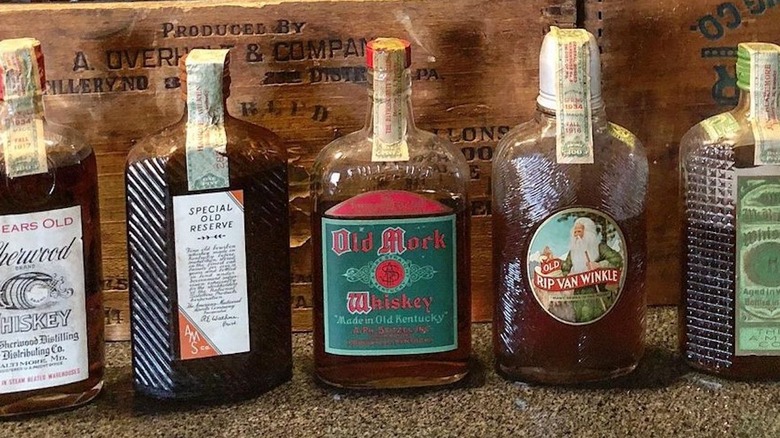Why Whiskey Was Never Banned During Prohibition
Prohibition was a notorious period in American history during which the creation, importation, exportation, and sale of most alcoholic beverages was banned. Congress passed the Volstead Act in 1919, and from January 1920 to December 1933, the 18th Amendment to the U.S. Constitution was active (via the Library of Congress). It wasn't until the 21st Amendment, which repealed the 18th, was ratified, that the nationwide embargo on alcohol ended. While folks could enjoy alcohol at home (if they had enough in stock before the ban began), History explains that there were still people who sold and knocked back drinks outside of their homes — illegally, of course. Bootleggers would often gather in speakeasies, unauthorized nightclubs, or liquor stores where they drank and sold booze.
Beer, wine, and spirits were among the forbidden alcoholic products during the Prohibition era, per History. However, there was one type of alcohol that was, in many cases, allowed for public sale.
Whiskey was considered medicinal during Prohibition
Whiskey, the iconic spirit made from fermented grains and essential to old fashioneds, Manhattans, and mint juleps, experienced a major loophole during the Prohibition era. The liquor known for its uniquely woodsy, floral, or smoky palate could be legally bought and sold during the coast-to-coast outlawing of alcohol. But how, exactly, was this possible?
Whiskey, as it turns out, was regarded as medicine back in the day and could therefore be legally prescribed by physicians, according to the Los Angeles Whiskey Society. Bourbon Veach states that only six whiskey distillers across the country — American Medicinal Spirits, Schenley Distilleries, James Thompson and Brother, Frankfort Distillery, Brown-Forman, and Ph. Stitzel Distillery — were given approval to bottle and sell medicinal whiskey. Every 10 days, patients could obtain a single pint of the stuff. Walgreens, as a matter of fact, grew from a mere 20 locations to over 500 during the Prohibition era thanks to the stipulation (via History).
WebMD shares that doctors prescribed whiskey to patients with ailments and conditions such as pneumonia, high blood pressure, and tuberculosis. Research has shown that whiskey may offer numerous health benefits when consumed in moderation, including lowering the risks of heart disease, reducing inflammation and LDL cholesterol levels, and helping alleviate symptoms of the flu or common cold.

